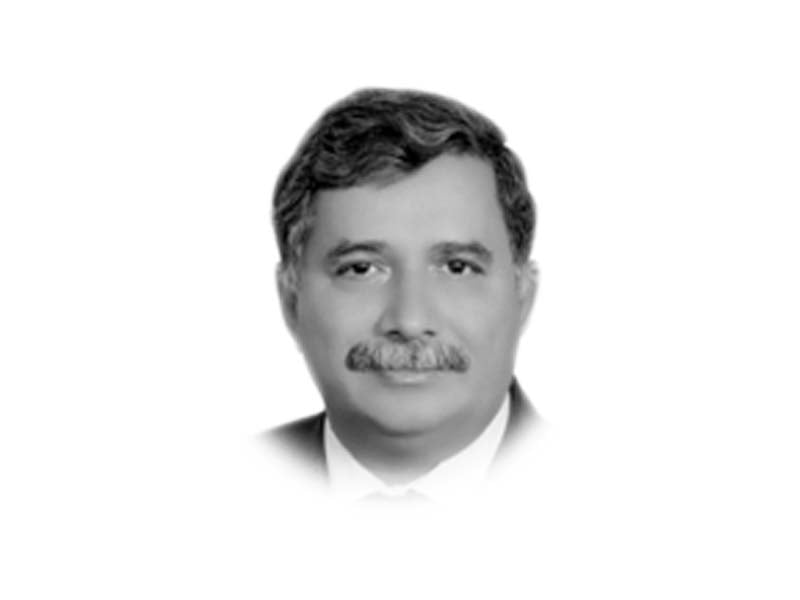
Prices have gone up with no corresponding increase in wages, weakening the purchasing power of the consumer. Prices of sugar, cement, steel, hardware, wheat, vegetables, groceries, poultry, dairy, meat, and other commodities have skyrocketed.
A sizeable section of the population saw a messiah in Imran Khan who would have the panacea for all their ills. With a magic wand he would bring the prices down and make the country a land of milk and honey. But due to the astronomical rise in prices the dreams appear to have been shattered. However, to alley such frustrations, mafias have been blamed.
Mafia, mafia, mafia! Sugar mafia, wheat mafia, steel mafia, petrol mafia, qabza mafia, this mafia and that mafia are blamed for making the life of the public miserable. The obvious question being asked is: what good is the government? Where is the governance?
In response, we have easy solutions — Prime Minister’s Portal, bachat bazar, langars, dastarkhwan, Ehsaas programme, and surprise raids in bazars.
Further giving hope, the prime minister predicted that the new year would be a year of economic growth for Pakistan. Expressing his satisfaction, he had said that the country was already moving in the right direction with industrial output increasing. The construction industry was already on its way up, which was evident from rising cement sales in the country. The textile industry was “producing at capacity for the first time in many years” so much so that it had caused a shortage of labour in the sector. “Our exports are increasing as compared to those of our competitors, so Pakistan is headed in the right direction.” The wealth that will be subsequently generated will be used to eradicate poverty.
This might be true to an extent. But, will just economic growth ensure distributive justice? Will there be a concentration of wealth in a few families of Pakistan?
The prime minister and his team are heard eulogising the 10-year period of Ayub Khan as the golden era of economic development but without realising that it was not the natural growth of the mercantile class into the capitalist mode of production but it was just the emergence of crony capitalism, bred on licences, vouchers and subsidies at the cost of poor farmers.
The phenomenon of this unbridled capitalism was nurtured on the philosophy of social utility of greed and trickledown to the common man. The laissez faire principle remained the driving force where the invisible hand would take care of the toiling masses. But neither the trickledown ever occurred nor the invisible hand took care of the downtrodden. Only greed surpassed all proportion.
During that period, the policy of encouraging industrial concentration had two dimensions. In the first instance by 1968, as many as 22 families emerged which controlled the finances. They controlled 66% of the industrial assets as well as banks and insurance companies. In the second instance, the policy had a negative fallout effect on East Pakistan. In a reckless pursuit of growth, when it came to resource allocation, selective areas and families of West Pakistan were preferred. Where the return was much higher than East Pakistan, where because of a relatively less developed economic infrastructure and relatively uncertain political conditions, returns expected were also much lower. In that exploitative system the bigger fish ate the smaller fish. As a result, class cleavages and regional disparities widened.
It is in the very nature of capitalism to expand. Self-interest of the individual and class, multiplying and maximising profit are the considerations. Capital has no emotion, no value and no norm. Exploitation of the labour in the form of surplus value produced, called profit, is just the aim.
In order to arrive at an objective analysis, one must not quote isolated examples and data but compare such data on the basis of the economic life of the general run of the population. The uneven distribution of wealth and uneven development — summed up as modern monopolist capitalism on a larger landscape — prove that monopolies and cartel wars are absolutely inevitable under such an economic system, as long as private property in the means of production exists.
The gigantic growth of industry and the remarkably rapid concentration of production in ever-larger enterprises are the basic features of capitalism. This transformation of competition into monopoly is one of the most important — if not the most important — phenomena of modern capitalist economy.
According to Karl Marx, free competition gives rise to the concentration of production which, in turn, leads to monopoly at a certain stage of development. Cartels are another form of monopolies which provide the foundations to the whole of economic life.
Cartels come to an agreement on the terms of sale, dates of payment, etc. They divide the markets among themselves. They fix the quantity of goods to be produced. They fix prices. They divide the profits among the various enterprises, etc.
Marx, based on his theory of historical materialism, says, “The ideas of the ruling class are, in every age, the ruling ideas.” These ideas are regarded as reflections of class interests and are connected to the power structure, which is identified with the class structure.
Based on the economic foundation of a given society, things such as laws, moral codes, beliefs, art, governmental forms and the theories of philosophy are all tuned to protect the interests of the ruling elite. In this phenomenon, the superstructure operates towards an end. It provides the commanding class of the society to justify and rationalise its position.
With this entire discussion, one can safely assume that expecting a change for better from exploitative system dominated by cartels is like living in a fool’s paradise. A capitalist economy in its present form will never deliver to the people. The masses can get rid of this exploitation by organising themselves into workers’ and peasants’ parties, representing their interest.
Published in The Express Tribune, May 19th, 2021.
Like Opinion & Editorial on Facebook, follow @ETOpEd on Twitter to receive all updates on all our daily pieces.




















COMMENTS (1)
Comments are moderated and generally will be posted if they are on-topic and not abusive.
For more information, please see our Comments FAQ